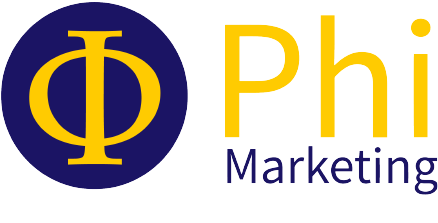Digital Marketing
Phi marketing excel in digital marketing strategies, including search engine optimisation (SEO), social media marketing, and content creation.
"Ignoring digital marketing is like opening a business but not telling anyone."
What is digital marketing?
Digital marketing, also known as online marketing, encompasses all marketing efforts that occur on the internet. It involves using digital channels such as search engines, social media platforms, email, and websites to connect with current and prospective customers.
Why is Digital Marketing Important?
Digital marketing offers numerous benefits that make it an essential strategy for businesses of all sizes. Here are some key reasons why digital marketing is important:
Types of Digital Marketing
Digital marketing encompasses various tactics and channels. Here are some of the most common types of digital marketing:
Phi Marketing can help you create the right digital marketing strategy, build relevant content and setup cross channel advertising to help you grow your business.
Let's have a chat about your digital marketing needs, just message below or call us on 01746 712841.

